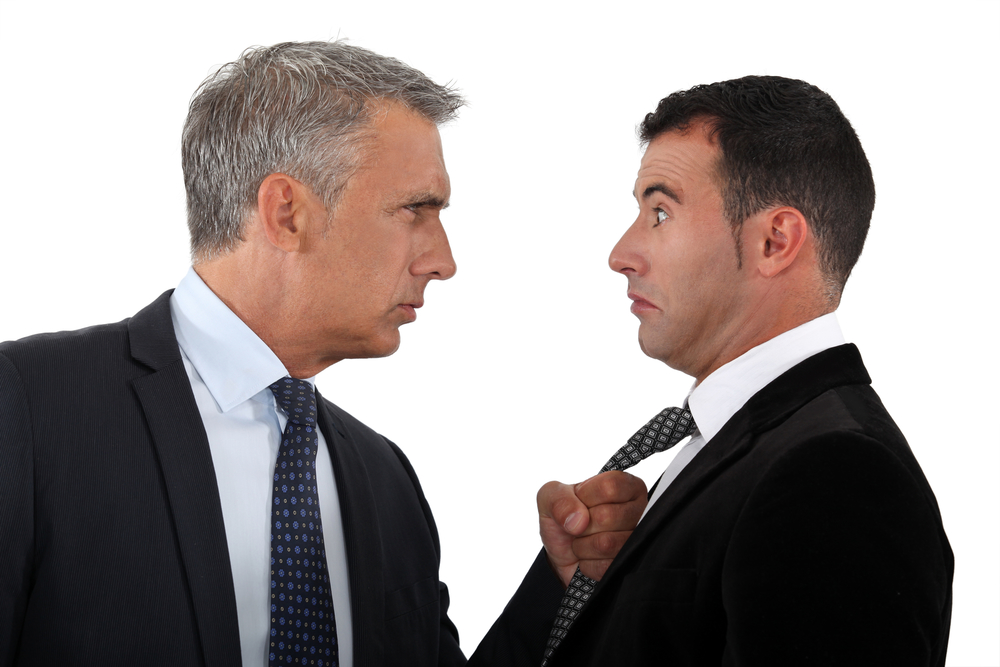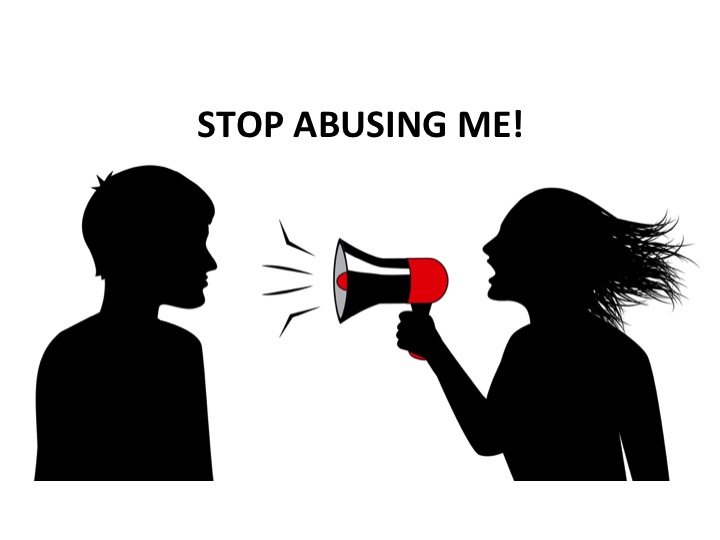Why Our Responses To Abuse Vary

You’ve seen it before. A man makes a comment that can be interpreted as insensitive or abusive depending on the listener, and every so often you hear a woman that rails into him, to just let him know how inappropriate he was. Seeing this is often shocking to those of us who are used to quietly taking it, wondering what we’ve done to justify his abuse.
Our responses to abuse can vary tremendously depending many factors.
A healthy response is one where we have a clear sense of when we, or others are being inappropriate. We know what we are willing to tolerate, and we don’t allow others to treat us badly. We can assert our right to be treated well without being abusive to those we feel are mistreating us.
An unhealthy response can take many forms.
Maybe we walk away and take it personally, and start to wonder if the abuser’s accusation are true.
Maybe we don’t anything to the abuser, and start asking ourselves, our friends or even God whether we had brought this abuse upon ourselves.
Maybe we lash out and become just as abusive towards the abuser.
Maybe we hold on to the belief that the abuser deliberately meant to hurt us, when the truth is far more complicated.
Maybe we refuse to see our role in the abuse.
With some people and some situations, we might respond well, whereas with others we may lose our cool.
So what are the factors that determine how we respond?
Our opinions about our abusers, our past triggers, and our mood influence how we respond. We also assess the tone of the abuser and how we choose to interpret it matters. Importantly, we are strongly influenced by how others respond. If we don’t have good models of people like us who know how to stand up to abuse, then we are less likely able to do it ourselves.
Lets elaborate on each of these point:
Our opinions about our abusers:
 You would be much more likely to be upset by your boss than a drunk guy on the street. Why? Because your boss knows you better, you probably have more respect for his/her opinion, and your boss’s opinion matters. As for the drunk guy? You know he’s drunk, and thus lacks credibility. He also doesn’t know you, and you can just walk away from him for good.
You would be much more likely to be upset by your boss than a drunk guy on the street. Why? Because your boss knows you better, you probably have more respect for his/her opinion, and your boss’s opinion matters. As for the drunk guy? You know he’s drunk, and thus lacks credibility. He also doesn’t know you, and you can just walk away from him for good.
How we see ourselves:
How we see ourselves plays a huge role in determining how we interpret the abuser’s words.
Sometimes we are triggered because there is a part of us that believes that what the abuser has said is true. This is usually subconscious. If it is repeated by an abuser often enough, and we let the abuse continue, it can change how we think about ourselves.
Often times when we are abused, at some level we can start to believe we must deserve to be treated this way. This can create an internal conflict between the part of us that knows that this is unacceptable vs. the part of us that believes we deserve it. There is often a lot of soul searching, to try to make sense of a world that would allow us to be the victim of such cruelty.
Sometimes we are triggered because we feel that the world agrees with the abuser, and that regardless of what we do, we will always be seen that way. This can make us feel hopeless and defensive.
Our mood:
 Our mood plays a huge role in determining how we respond. If we are in a good mood, we might not want to ruin our good mood. So we would interpret the abuse in a way that is less likely to upset us. Similarly, if we have a more pessimistic view of the world, then abuse will confirm our previously held beliefs, and we are more likely to get mired in a negative monologue.
Our mood plays a huge role in determining how we respond. If we are in a good mood, we might not want to ruin our good mood. So we would interpret the abuse in a way that is less likely to upset us. Similarly, if we have a more pessimistic view of the world, then abuse will confirm our previously held beliefs, and we are more likely to get mired in a negative monologue.
Our interpretation of their tone:
A person’s tone helps us determine the true meaning behind someone’s words. Our ability to interpret tone is partly based on our emotional intelligence, our familiarity with the person, our history with others, and our sensitivity to someone’s energy. Importantly, the method of delivery matters. It is much easier to misinterpret something written than expressed in person for example.
How we are influenced by other’s behaviors:
We also feel more triggered when we don’t see other people like us standing up for our rights. If we see people in our demographic group (ie gender or race) being treated a certain way, we subconsciously come to believe that that is how we should be treated. A great example of this is how women are paid in America. Women are paid 80% of what their male counterparts are paid. While this is primarily driven by employers, American women also feel less entitled, and therefore don’t demand to be paid fairly. If we had the privilege of seeing more women being paid fairly by asking for it, we would feel more empowered to do the same.
In summary, how we interpret abuse is based on our self-concept, our mood, and how we have seen others behave. Our self-concept and mood can change by releasing subconscious barriers. When we change within, we are more likely to seek out healthy people with healthy behaviors. We have less tolerance for staying in a low energy state, and therefore, we are less tolerant of abuse.
Know anyone interested in developing greater resiliency to abuse? They can learn more about releasing subconscious barriers with my interview, and contact me here.



